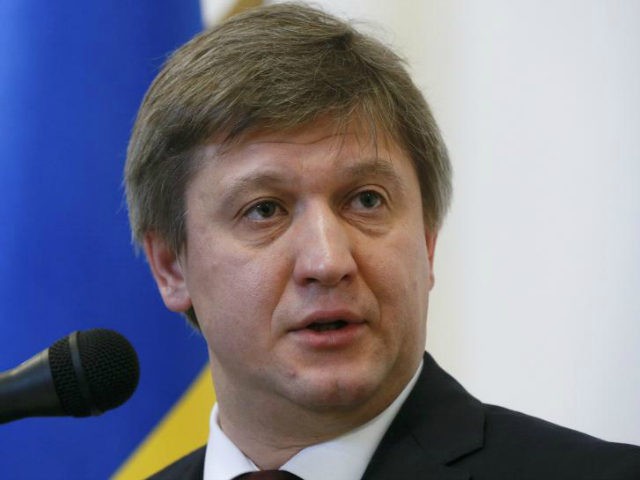WASHINGTON – Even as Russia continues to threaten Ukraine in the eastern region of the country, its minister of finance, Oleksandr Danyliuk, said the best way to ensure national security is through building a strong economy, including attracting private sector investors from the West.
When Breitbart News asked if national security was a top priority because of the ongoing Russian threat, Danyliuk said it was important but not the most important.
“Of course,” Danyliuk said. “Security is important. It’s extremely important.”
But, he said, sometimes it can distract from “fundamentals,” like making the kind of governmental reforms that will encourage economic growth.
“The business climate is of the ultimate national security,” Danyliuk said, “because if we have a strong economy, we will be able to fund the military.”
“We’ll be able to support the army,” Danyliuk said. “We’ll be able to make our citizens more confident in their future.”
Breitbart News spoke to Danyliuk at the Hudson Institute, where he spoke about the kinds of reforms his government is trying to make, including putting into place pension reforms to stem the financial drain of current social welfare programs and land market reforms to restore private property rights.
The timing of his visit coincides with the International Monetary Fund’s (IMF) approval of a $17.5 billion loan to Ukraine and the first $1 billion installment handed over this month — with caveats about reform.
“Ukraine receives a $1 billion installment of its $17.8 billion financial support for the reform program of the government, following IMF’s review of the state of the count’s economy,” the IMF said on its website. “While the economy is slowly recovering after a severe crisis in 2014-2015, the country must still break with a legacy of weak governance and stop-and-go reforms to generate the sustainable growth it needs for higher incomes and better social conditions.”
The “crisis” refers to the 2014 Revolution of Dignity that drew millions of Ukrainians into the streets of the capital demanding the resignation of President Viktor Yanukovych and the end of government corruption. Before it was over, government security forces had killed 100 protesters. Yanukovych eventually fled the country and elections were held.
“The economic and social costs of the crisis have been high,” said the IMF mission chief for Ukraine, Ron van Rooden. “The government has undertaken important reforms under very difficult circumstances, but it has to do much more to recover the lost ground, to bring incomes closer to those in the neighboring states, to improve social conditions, and to build a modern market economy.”
The IMF report noted that the pace of structural and governance reforms must move more quickly.
“Without this, it is hard to see the country achieving the stronger economic growth it needs,” van Rooden said. “The government should work on building the necessary support from society for these important reforms.”
“Ukraine is clawing its way out of a deep two-year recession that was fanned by heavy spending on fighting a Russian-backed eastern separatist insurgency in which Kiev’s big industries fell into rebel hands,” AFP reported this week.
“But its needs foreign financial help to repay outstanding loans and pursue an economic policy that could temper inflation while achieving sustainable growth,” AFP reported.

COMMENTS
Please let us know if you're having issues with commenting.